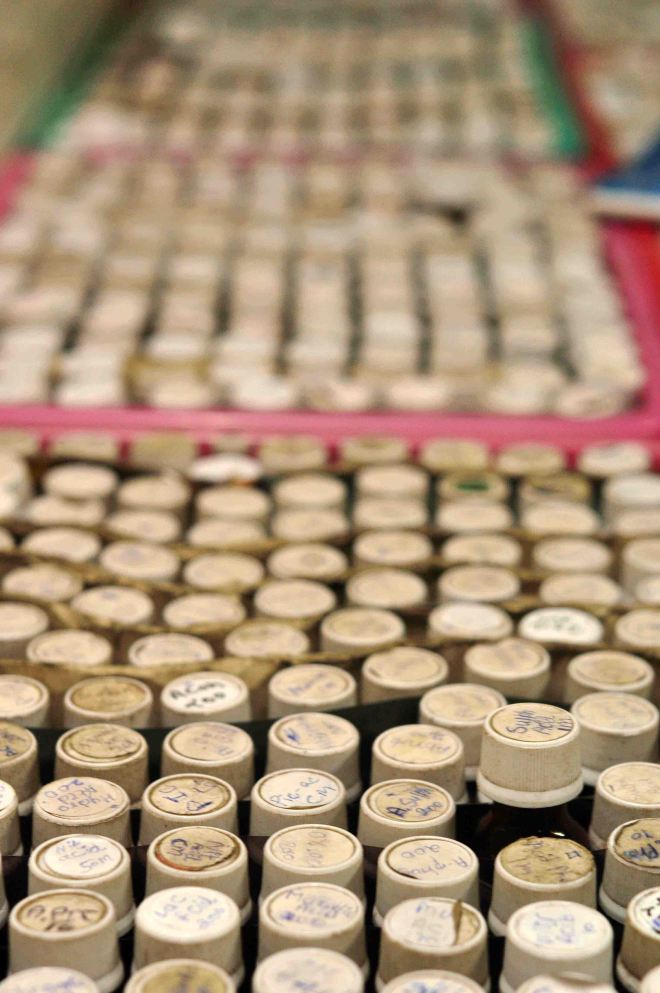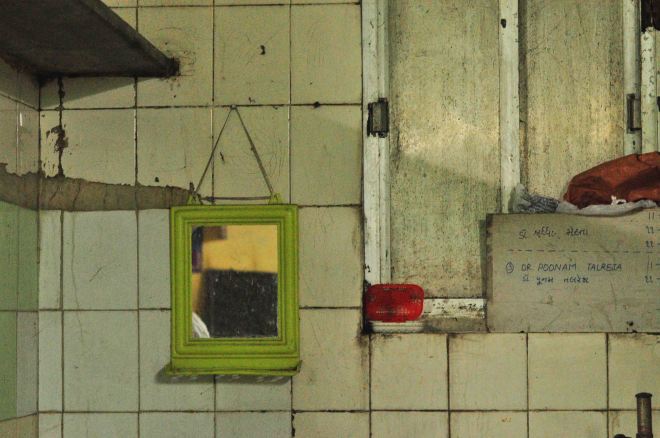There is a dimly-lit community centre with two rooms at Kumbharwada, Dharavi. You reach it after treading clayey paths where workers labour over sacks of mud meant for the potter community. One room is for visits from an allopathy doctor and in the other is a homeopath. No signs advertise the services available at the community centre, but there is a steady trickle of patients, mostly elderly. They enter in a moment of suspense: which door will they choose? Allopathy or homeopathy?
The clinics are part of a charitable trust, the Pramila and Harishkumar Foundation, set up by homeopath Dr Geeta Punjabi in 2009. The 74-year-old veteran meant them to cater for the poor in Dharavi so that they could get quick relief at subsidised rates. The homeopathy centre is currently attended by Dr Poonam Talreja, who has been there since 2010. Her clinic is painted a bright shade of green and most of the space is taken up by trays of bottles of homeopathic medicines. It’s hard to find her unoccupied. As each patient consults her, the conversation is punctuated by the pitter-patter of raindrops on the asbestos roof. The patients queueing outside grumble impatiently in low voices, but are glad that the doctor gives each of them a decent amount of time.
Dr Talreja says that she has seen some challenging cases cured with homeopathy. “We don’t try to heal just a particular organ, but rather improve the overall immunity of the patient. We won’t claim that all our patients have reached normalcy, but they have surely reached a near-normal state,” says Dr. Talreja.
Sometimes mistaken for a “lady-doctor," she points out that the commonest health issues she sees in Dharavi are chronic fatigue, joint pains and asthma attacks. “These are mostly female patients. They neglect their health and they hope that if they pop a pill they’ll be fine instantly,” she says, nodding her head. Most of her female patients are daily wage-earners and she says that a quick fix is a must or it could mean losing out on a day’s pay. People also come with digestion problems. “Many Dharavi people have problems such as constipation or diarrhoea, but I am careful before prescribing medicines. I always check to make sure that they have toilets in the vicinity of their homes. Otherwise, it could be a big problem for a patient who has just taken some laxatives.”
With subsidised rates for medicines (globules are free, tinctures and laxatives are half-price), Dr Talreja says that not everyone is Dharavi is poor. There is a donation box in the clinic and more affluent clients are advised to purchase the medicines at retail rates.
When clients enter the community centre, which door do they choose? Have they made an informed decision about which medical recourse will work best for their health issues? Or do they try both allopathy and homeopathy with the hope that something might eventually work?



